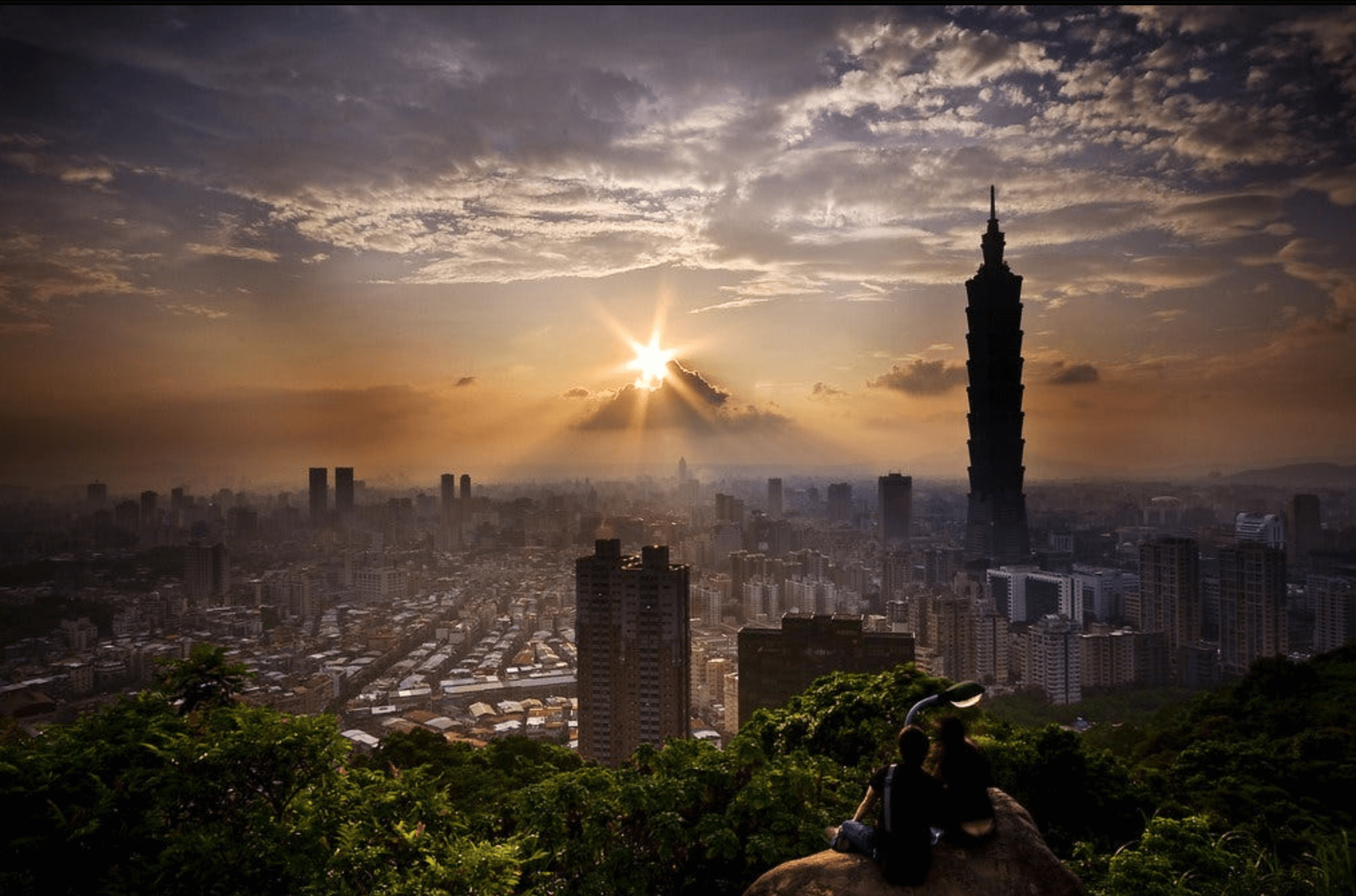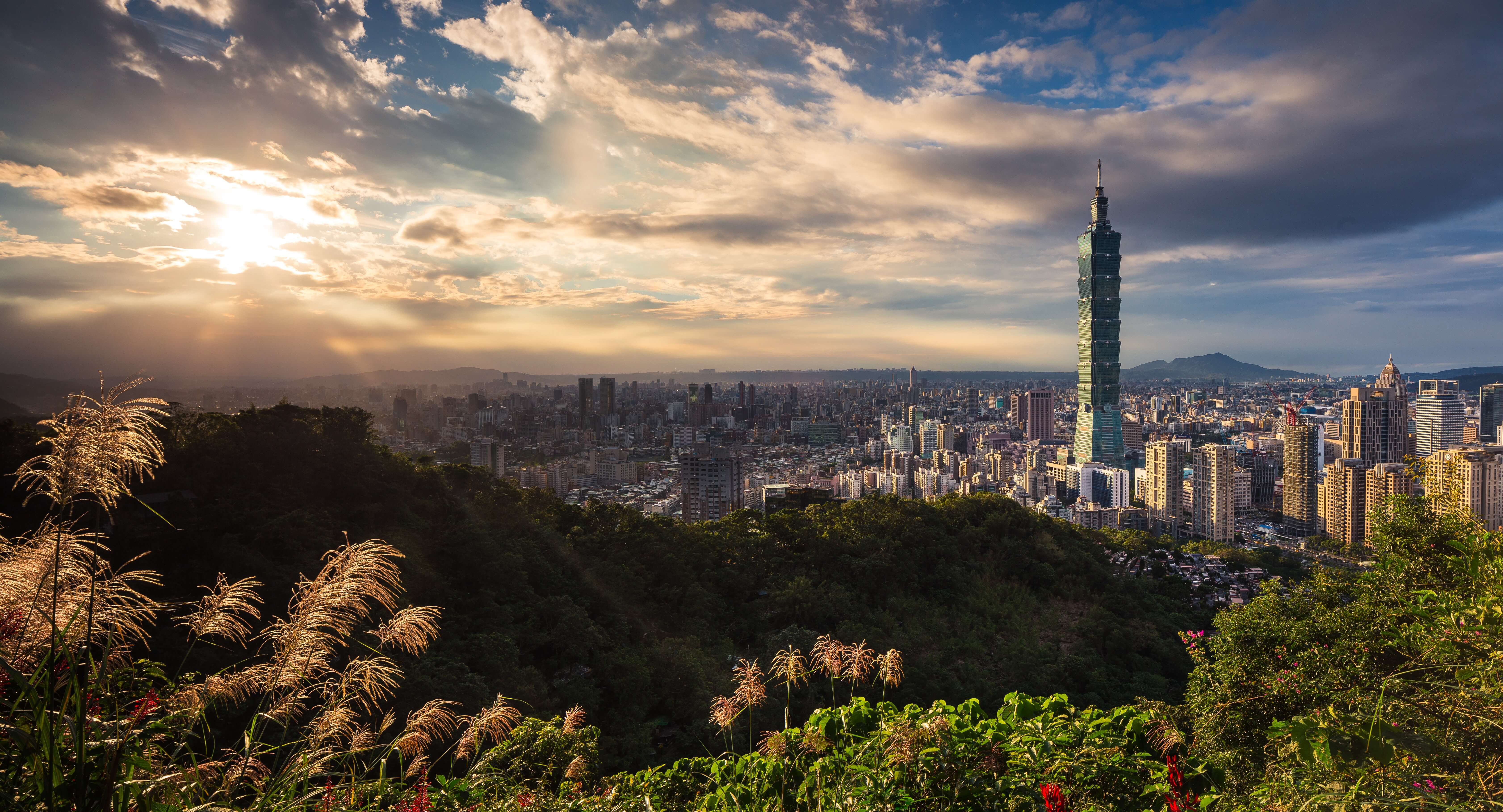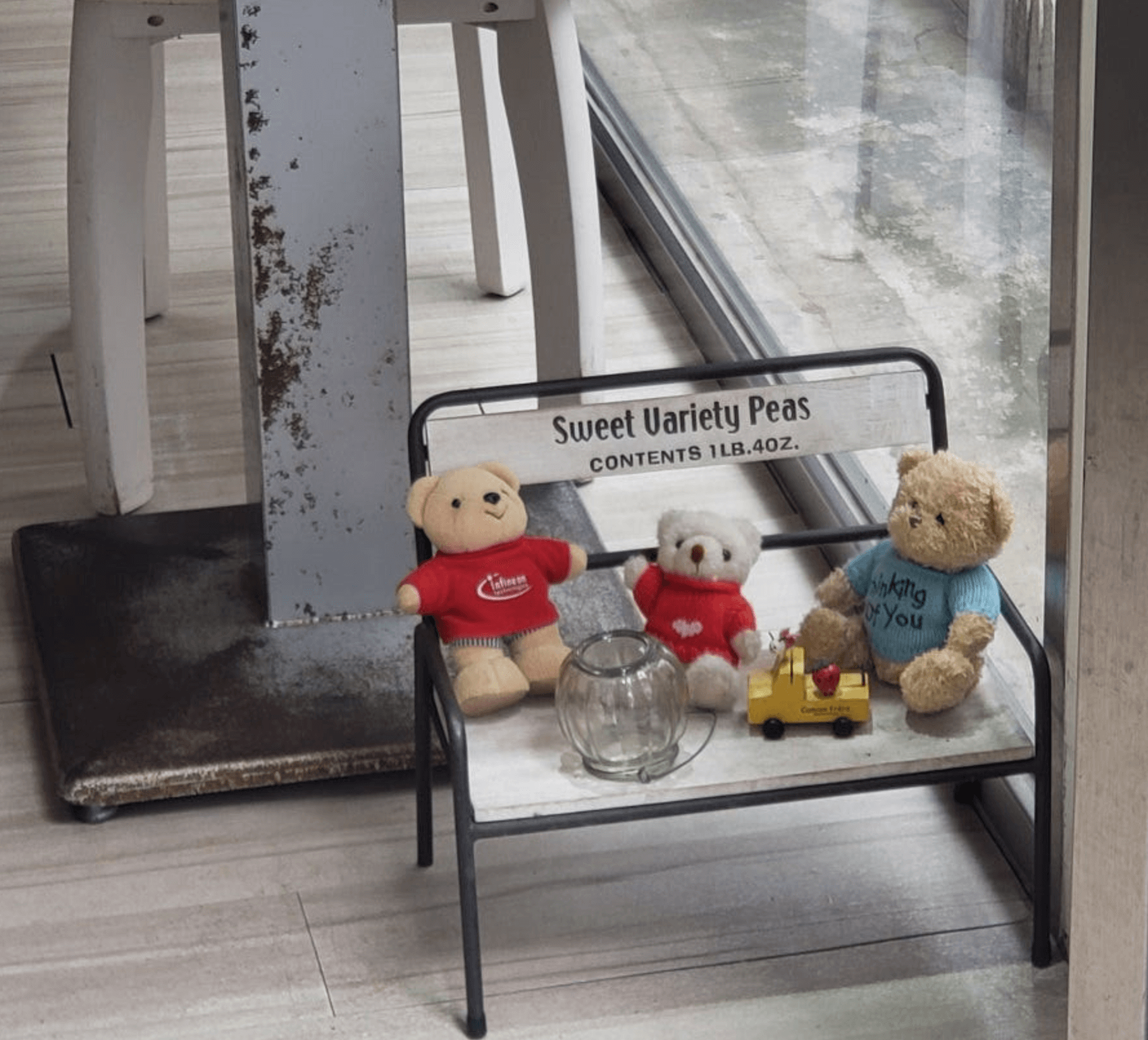原始文章
關於台灣,我首先注意到的是每個人看起來都很悠閒。 紐約、東京和上海等特大城市充滿了狂熱的能量; 在台北,每個人似乎都在閒逛。 人們並不著急,他們不執著於細節和忙碌的工作。 在鄉下的十一天裡,我一次也沒有聽到提高的聲音,也沒有看到任何形式的分歧,也沒有看到兩個人互相妨礙。 在日本,人們盛裝打扮去便利店; 在台灣,時尚街區的人們看起來就像在 Target 購物。 當我問數碼部部長鄧麗君,為什麼台北不多改造一些破舊的舊建築時,她回答說“沒有壓力”。
The first thing I noticed about Taiwan was how laid-back everybody seemed. Megacities like New York, Tokyo, and Shanghai are suffused with a frenetic energy; in Taipei everyone just kind of seems to saunter along. People are not in a hurry, they are not obsessed with details and busy-work. In eleven days in the country, I didn’t once hear raised voices, or witness a disagreement of any kind, or see two people get in each other’s way. In Japan people dress up to go to the convenience store; in Taiwan people in trendy neighborhoods look like they shop at Target. When I asked Audrey Tang, the Minister of Digital Affairs, why Taipei doesn’t renovate more of its dilapidated old buildings, she replied “There’s no social pressure for that.”
哦,對了……我遇到了 Audrey Tang! 由於她極度透明的理想,我們討論的公開記錄將在幾天內公佈。 我們認識的方式非常符合我對悠閒台灣的印象——我在一次社交活動中偶然遇到了她的一個朋友,他只是給她發了一封簡短的電子郵件。 唐是我心目中的英雄,談話在各個方面都達到或超出了我的高期望。 (如果你真的想看到她詳細闡述,請查看她對泰勒考恩的採訪。)
Oh and by the way…I met Audrey Tang! Thanks to her ideal of radical transparency, a public transcript of our discussion will be published in a few days. The way we met was extremely in keeping with my impression of a laid-back Taiwan — I randomly met a friend of hers at a networking event, and he just shot her a quick email. Tang is a bit of a personal hero of mine, and the conversation lived up to or exceeded my high expectations in every way. (If you really want to see her expound at length, check out her interview with Tyler Cowen.)
台北就是這樣——一個小鎮的感覺,卻擁有大城市的便利設施。 有趣的是,我直接從阿姆斯特丹來到台北,因為這兩種文化讓我想起了對方——安靜悠閒的態度、社會寬容、(通常令人討厭的)滑板車。 性別平等和同性戀權利,以及極低的犯罪率。 給台灣貼上“亞洲荷蘭”的標籤可能有點過頭了,但這可能是許多台灣人嚮往的未來。
That’s just the way Taipei is — the feel of a small town with the amenities of a big city. It’s interesting that I came to Taipei directly from Amsterdam, because the two cultures remind me a bit of each other — the quiet laid-back attitude, the social tolerance, the (often annoying) scooters. The gender equality and gay rights as well, and the extremely low crime. Branding Taiwan the “Netherlands of Asia” might be a bridge too far, but it’s probably a future many in Taiwan would aspire to.
荷蘭是一個小國,儘管它最終建立了自己的帝國——有趣的是,它曾一度包括台灣在內,但長期以來一直抵制更大、更具侵略性的鄰國的統治。 - 首先是荷蘭人,然後是一群明朝的忠誠者和海盜,然後是清朝,然後是日本人。 殖民化的最後一幕是中國戰敗的國民黨政府帶著200萬支持者逃到島上,對600萬當地人進行殘酷的統治和鎮壓。 儘管今天的台灣是一個自由民主國家,國民黨後代與早期移民後代之間的區別已經淡化很多,但這一歷史插曲確實潛伏在台灣現代政治分歧的表面之下。
The Netherlands was a small country that for a long time resisted domination by bigger, more aggressive neighbors, though it eventually established its own empire — which, interestingly, included Taiwan for a while. Taiwan has spent most of the last 500 years as someone’s colony — first the Dutch, then a gang of Ming Dynasty loyalists and pirates, then the Qing Dynasty, then the Japanese. The final episode of colonization was when China’s defeated Nationalist government fled to the island with 2 million of their supporters, brutally dominating and suppressing the 6 million locals. Though Taiwan is a liberal democracy today, and the distinctions between the descendants of the Nationalists and the descendants of earlier settlers have faded quite a bit, this historical episode does lurk a bit beneath the surface of Taiwan’s modern-day political divides.
從文化上講,台灣與中國截然不同,這一點在您離開機場時就顯而易見了。 食物——食物是台灣的全民消遣——顯然源自中國,但實際上是它自己的東西。 它融合了中國所有的地方美食,因為國民黨無處不在,它增加了日本的風味,但它也有許多來自任何富裕的消費主義社會的純粹原創的繁榮。 正如您所料,奶茶無處不在,但口味已經超越了經典的波巴奶茶配方。 台北的城市佈局、標誌、建築和設計,絕對不是中國的,也不是日本的; 它們是新近製作的東西。 大約兩年前,我寫過“台灣是一個文明”,我堅持這個提法。
Culturally, Taiwan is very much not China, and this becomes apparent as soon as you leave the airport. The food — and food is Taiwan’s national pastime — is obviously Chinese-derived, but is really its own thing. It blends all the regional cuisines of China into a mishmash, because the Nationalists came from everywhere, and it adds touches from Japan, but it also has plenty of the purely original flourishes that emerge from any rich consumerist society. Milk tea is everywhere, as you might expect, though tastes have moved beyond the classic boba formula. The urban layout of Taipei, the signage and architecture and design, are definitely not Chinese, nor are they Japanese; they’re something new and recently made. Almost two years ago I wrote that “Taiwan is a civilization”, and I stand by that formulation.

僅僅 11 天後,您能對整個文明說些什麼? 我在美國生活了 30 多年,而我所在的社會不斷尋找新的方式讓我感到驚訝和困惑。 也許沒有人真正知道任何地方是什麼樣的。 您真正得到的只是提示和感受。
What can you say about a whole civilization after just eleven days? I’ve lived more than three decades in America, and my own society constantly finds new ways to astonish and confuse me. Maybe nobody ever really knows what any place is like. All you really get are hints and feelings.
台灣感覺像是一個高度個人主義的地方。 我有兩次發現自己在一家酒吧里,那裡只有一個人穿著朋克搖滾服飾。 有時似乎每個人都有自己的小生意。 我的 Airbnb 房門上的鎖是臨時組裝的電子小玩意兒。 很多人為自己取了英語名字,有些人一時興起就改了; 我見過台灣人用“Annester”(“Anne”和“Chester”的合成詞)和“Uniko”(來自“unique”)。 處處都有一點點可愛——不是日本的可愛,也不是法國的可愛,而是台灣獨有的東西。
Taiwan feels like a highly individualistic place. Twice I found myself in a bar where there was just one person dressed in full punk rock regalia. Sometimes it seemed like everyone has their own small business. The locks on my Airbnb door were ad-hoc, hacked-together electronic gizmos. Lots of people make up Anglophone names for themselves, and some change it on a whim; I’ve met Taiwanese people who went by “Annester” (a portmanteau of “Anne” and “Chester”) and “Uniko” (from “unique”). There are little touches of cuteness everywhere — not the Japan kind of cute, or the French kind, but something unique to Taiwan.
個人主義似乎也滲透到這個國家的政治中,至少在年輕一代中是這樣。 2014 年的太陽花運動——反對加深與中國的糾纏——以激進民主和數字激進主義的各種實驗為特色,唐奧黛麗本人在其中發揮了作用。 它引發了各種後續行動主義浪潮,為香港的雨傘運動提供了靈感,並催生了一代理想主義且往往極具原創性的政治家。 與我交談的一些台灣人在閒聊中提到了這一運動,並自豪地談到它。
Individualism seems to infuse the country’s politics as well, at least among the younger generations. The 2014 Sunflower Movement — which opposed a deepening of entanglement with China — featured various experiments in radical democracy and digital activism, in which Audrey Tang herself played a role. It gave rise to various follow-on waves of activism, provided inspiration for Hong Kong’s Umbrella Movement, and spawned a generation of idealistic and often highly original politicians. Some of the Taiwanese people I talked to brought up this movement in casual conversation, speaking of it with great pride.
我的感覺是,這種個人主義與台灣普遍的悠閒和寬容密切相關——當沒有人責備你去排隊時,你就會學會做自己喜歡的事。 有時,台灣人的自我表達可能近乎愚蠢。 來自我,這是一種恭維。
My sense is that this individualism goes hand-in-hand with Taiwan’s general laid-back-ness, and its tolerance — when nobody is snapping at you to fall in line, you learn to pretty much do what you like. At times, Taiwanese self-expression can border on the goofy. Coming from me, that’s a compliment.
為什麼人們不能這樣生活? 為什麼一個社會要被帝國的夢想所吞噬? 與荷蘭不同,台灣永遠不會征服任何人——他們只會繼續過自己的生活,穿著寬鬆的牛仔褲漫步到茶館,白天經營生意,晚上在酒吧舉杯。
Why shouldn’t people be able to live this way? Why should a society be consumed with dreams of empire? Unlike the Netherlands, Taiwan is never going to conquer anybody — they’re just going to keep living their lives, strolling to the tea shop in loose-fit jeans, running their businesses in the day and raising a glass in the bars at night.
當然,除非其他人的帝國夢想闖入。 台灣存在於一把達摩克利斯之劍之下——中華人民共和國永遠存在的入侵、征服和破壞的威脅。 在 2000 年代,這些威脅有所緩解,但自大流行以來,它們卻以驚人的速度加劇。 我問過一些台灣人關於戰爭威脅的問題,他們出奇地漠不關心。 他們告訴我,中國入侵的威脅一直存在; 這不是什麼新鮮事。 這“和地震一樣,”Audrey Tang 聳聳肩告訴我。 有時會發生災難。 如果他們的國家被入侵,台灣人說他們會戰鬥,就像烏克蘭人一樣。 但在那之前,為什麼要擔心呢?
Unless, of course, someone else’s dreams of empire intrude. Taiwan exists under a sword of Damocles — an ever-present threat of invasion, conquest, and destruction by the People’s Republic of China. In the 2000s those threats eased up, but they have intensified alarmingly since the pandemic. I asked a number of Taiwanese people about the threat of war, and they were surprisingly nonchalant. The threat of Chinese invasion has always been present, they tell me; this is nothing new. It’s “the same as earthquakes,” Audrey Tang told me with a shrug. Sometimes disasters happen. If their country is invaded, Taiwanese people say they’ll fight, just as the Ukrainians fought. But until then, why worry?
這種漫不經心掩蓋了準備工作的緊迫性。 台灣的軍事戰略和文化需要深度改革(由於烏克蘭戰爭,他們可能終於做到了)。 最重要的是,該國可能會建立一個由深隧道連接的防空洞網絡,以防中國導彈的飽和襲擊。 當然,無論台灣做什麼準備,如果沒有外來幫助,它不可能無限期地抵抗一個比自己大60倍的國家。 我預計它會得到這種幫助,因為中國可能不會在不先攻擊美國在該地區的基地的情況下冒險入侵,從而引發更廣泛的戰爭。 但我離題了。
That insouciance belies the urgency of the need for preparation. Taiwan’s military strategy and culture need deep reforms (which, thanks to the Ukraine war, they may finally be getting). On top of that, the country could probably stand to build a network of bomb shelters linked by deep tunnels, in case of saturation strikes by Chinese missiles. No matter what preparations Taiwan makes, of course, it won’t be able to indefinitely resist a country 60 times its size without external help. I predict that it would get that help, since China probably wouldn’t risk an invasion without first attacking U.S. bases in the area, touching off a wider war. But I digress.
為什麼像台灣這樣一個和平、繁榮、溫和的國家要被迫為入侵和流血的威脅做好準備? 沒有任何人類道德或正義原則說他們必須這樣做。 相反,這純粹是叢林法則。 這個世界上有掠食者,他們會盡其所能征服一切,直到被制止。 中國領導人想要征服台灣,不僅是因為他們想在領土範圍上與舊清朝抗衡,還因為台灣對他們來說代表著他們無法忍受的東西——亞洲的另一種藍圖。 也許比日本或韓國,台灣更能向中國人及其衛星國展示他們所缺少的東西——一種人們可以只做自己的生活方式,而不是為一個大帝國服務的生活方式。
Why should a peaceful, prosperous, gentle country like Taiwan be forced to prepare for the threat of invasion and bloodshed? There is no principle of human morality or justice that says they should have to. Instead, it’s purely the law of the jungle; there are predators in this world, and they will conquer what they can until they are stopped. China’s leaders want to conquer Taiwan not just because they want to rival the old Qing dynasty in territorial extent, but because Taiwan represents something to them that they can’t abide — an alternative blueprint for Asia. Perhaps even more than Japan or South Korea, Taiwan shows people in China and its satellite states what they’re missing — a way of life where people can just be themselves, instead of living in service to a grand empire.
在某些方面,台灣也向美國人展示了我們所缺少的東西。 我發現台北是亞裔美國僑民的避風港,部分原因是語言和家庭關係,但部分原因是它提供了美國式的消費主義和機會,以及荷蘭式的安全和寬容。 台灣尚未成為廣大美國民眾的旅遊目的地,部分原因是它尚未成功複製韓國和日本的流行文化魅力。 但如果你想去海外旅行,看看一個很酷的新地方,台灣將是我推薦名單的首位。 我很喜歡。 這很酷。 願它屹立不倒。
In some ways, Taiwan shows Americans what we’re missing, too. I found Taipei to be something of a haven for Asian American expats, partly because of linguistic and family ties, but partly because it offers America-like consumerism and opportunity with Netherlands-like safety and tolerance. Taiwan hasn’t yet caught on as a travel destination among the broader American populace, partly because it hasn’t yet managed to replicate the pop-cultural appeal of Korea and Japan. But if you’re thinking of taking an overseas trip to see a cool new place, Taiwan would be at the top of my recommendation list. I liked it a lot. It was cool. Long may it stand.

